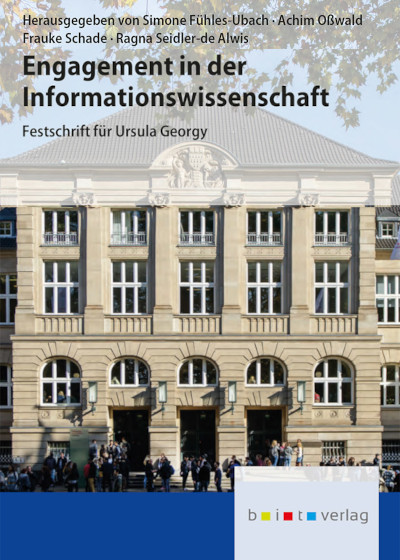 WEITERE NEWS
WEITERE NEWS
- Philosophie neu gedacht – Die neue Themenwelt bei Nomos
- Zugang zu Forschungsdaten in Gefahr: Ein aktuelles Beispiel aus der Infektionsbiologie
- Neue berufsbegleitende Weiterbildung: Digitale Lösungen für Bildungsaufgaben
- Klaus Tochtermann neuer Präsident der European Open Science Cloud Association
- Charleston In Between 2025 – A Hybrid Global Gathering
- Thorsten Meyer in den Bundesvorstand des Deutschen Bibliotheksverbands gewählt
- Bibliotheken – Orte der Demokratiestärkung
- Neue Wege zur Fachliteratur: CINAHL im ZB MED-Fernzugriff

Aktuelles aus
L
ibrary
Essentials
In der Ausgabe
- Die unheimliche Begegnung der
KI-Art: Wie Menschen im Alltag mit Sprachmodellen umgehen - KI-Kompetenz als Kernaufgabe wissenschaftlicher
Bibliotheken - Data Literacy: Datenkompetenz –
von der Hochschule in den Job - Maschinelles Lernen im Auskunfts-
und Informationsdienst:
Analyse virtueller Chat-Anfragen - FAIRer Datenaustausch in der Wissenschaft: Warum der Weg noch steinig ist
- Wissenschaftliches Publizieren im Umbruch: Teilen von Wissen und Prestige
- Wie wirkt sich Open Science
auf die Wirtschaft aus? - Wie vertrauenswürdig ist das Internet
für Jugendliche im Zeitalter der KI? - Gefälschte Publikationen und
institutionelle Retraction-Welle - Die Magie der Bücherschränke:
eine Oase in der Bücherflut - Metrik-Sonifikation: Transformation
von bibliometrischen Daten
zur Vermittlung in Klangform - Gefährdung der Bibliotheksfinanzierung: die geplante Auflösung des IMLS und ihre Folgen
- Nachhaltige Bibliotheken als
Resilienz-Anker der Zukunft:
ökologische Verantwortung,
soziale Gerechtigkeit und
strategische Partnerschaften

fachbuchjournal




















































